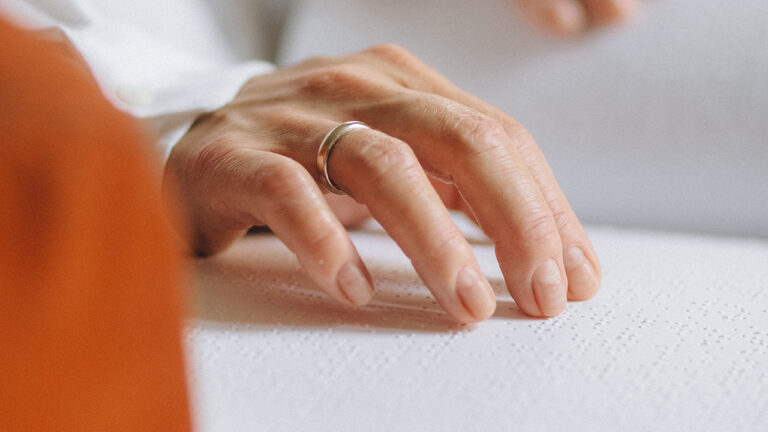Diabetes is the leading cause of vision loss in the United States for people under 70 years old, mainly due to diabetic retinopathy. Nearly half of all people with diabetes will develop this eye condition. Diabetes also increases the risk of developing cataracts, glaucoma, and other eye conditions. Along with a decrease in vision, is a higher chance of a heart attack or stroke. Knowing all of this is not thrilling. However, knowledge is power. Diabetics with vision loss can successfully manage their disease by educating themselves, following a healthy diet, exercising regularly, and managing their medications. Following these four steps can help ensure you are set up to win and have a fulfilling quality of life.
Educate yourself on diabetes.
Learn all that you can about your disease and how it works. Be sure to have open conversations with your medical professionals. This includes your primary care physician, nurse, diabetes educator, nutritionist, and pharmacist. Be sure they understand that they are providing care for a diabetic with vision loss. Be ready to advocate for yourself when necessary to meet your medical needs.
Learn about diabetic resources in the community, such as reading materials at the National Library Service for the Blind and Print Impaired. Check out diabetic support groups hosted by blind consumer groups, like the National Federation of the Blind and the American Council for the Blind. Vision Rehabilitation Centers, like Outlook Enrichment, can be another great resource when educating yourself on diabetes. Many will provide training on adaptive ways to live with diabetes and vision loss. They can introduce you to low-vision aids and devices to help with diabetes management.
Follow a healthy diet.
What to eat is one of the major concerns of people when they are first diagnosed with diabetes. Since every person’s body is different, there is no magical answer. However, you can take some simple steps to keep your blood sugar in check. The American Diabetes Association recommends the Diabetes Plate Method. Using this approach, you can design perfectly portioned meals with a healthy balance of vegetables, protein, and carbohydrates. Fill half the plate with non-starchy veggies, one-quarter with lean protein, and one-quarter with carbs.
Use adaptive kitchen aids, such as large-print measuring cups and spoons, to prepare accurate portions. Read labels, nutrition information, and other printed materials with magnifiers, or call Be My Eyes for assistance. Learning to manage your kitchen will build self-confidence and independence, resulting in better diabetes management.
Get regular exercise.
Exercise is critical in managing your diabetes. It can help lower your blood sugar and blood pressure while boosting your energy levels and sensitivity to insulin. Consult your doctor before you begin an exercise program, especially if you are new to exercise or are mostly sedentary. You want to make sure there are no restrictions or special precautions. Walking, calisthenics, swimming, yoga, weight lifting, and adaptive team sports can be done with vision loss. Check out Outlook Enrichment’s Recreational Program for physical activities.
Manage your medication.
Keeping blood sugar under control is vital for diabetics with vision loss, requiring many with diabetes to take medication regularly. There are many types of medications to treat diabetes, and more are being developed all the time. Knowing the various kinds and behaviors of diabetic medications and how they help regulate blood sugar levels can help you control your health. Answering these questions is important to managing your diabetes:
-
How do I know the medication is working?
-
Is what I am experiencing a side effect?
Research your medications. Check reputable websites and apps. Use personal assistants like Alexa. Talk to your doctor, nurse, diabetes educator, or pharmacist. Use tools like ScripTalk, Spoken RX, braille, and large print to establish a safe way to identify your medications. There are also accessible monitoring and insulin-measuring devices available. Ultimately, creating a medication management regimen that works for you is very beneficial.
As we observe National Diabetes Awareness this November, take some time to review your diabetes management strategy. Have you educated yourself on how diabetes works and how it impacts your life as a person with a vision impairment? Have you organized your kitchen and developed a cooking routine? Are you getting all the good, healthy foods you need each day? How is the exercise going? If you take medications, are you managing them well with your vision impairment? If you need assistance after reflecting on these questions, contact Outlook Enrichment.


